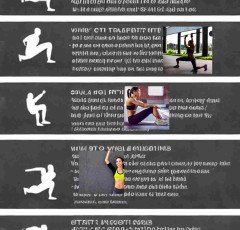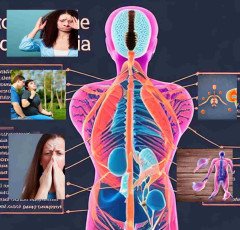
Tips for a Healthier Heart

For general health, maintaining a healthy heart is essential. Here are some recommendations for a heart that is in better shape, along with descriptions
Dietary Balance
Consume a varied selection of fruits, vegetables, whole grains, lean proteins, and healthy fats as part of a nutritionally sound diet. Foods heavy in sodium, added sugars, saturated and trans fats should be avoided or limited. A balanced diet lowers the risk of heart disease by assisting in maintaining a healthy weight, managing blood pressure, and controlling cholesterol levels.
Regular Physical Activity
Exercise frequently to maintain cardiovascular health and a strong heart. Aim for 75 minutes of intense activity or 150 minutes of moderate aerobic activity each week. Include strength training activities twice a week to increase muscle mass and general fitness.
Keep Your Weight Healthy
Obesity strains the heart and raises the chance of developing a number of heart problems. Heart health depends on achieving and maintaining a healthy weight through a mix of a balanced diet and frequent exercise. An appropriate weight range for your body should be determined in consultation with a healthcare practitioner.
Quit Smoking
Smoking increases the risk of heart disease significantly. In addition to harming blood arteries, it reduces oxygen delivery and raises the risk of blood clots. One of the most effective actions you can take to improve heart health is to stop smoking. To improve your chances of success, seek expert assistance, try nicotine replacement therapy, or join support groups.
Manage Stress
Long-term stress can worsen general health and lead to heart disease. Find healthy coping mechanisms for stress, such as routine exercise, deep breathing techniques, mindfulness exercises, meditation, spending time with loved ones, engaging in hobbies, and getting help from friends, family, or professionals.
Monitor Blood Pressure
Heart disease is significantly impacted by high blood pressure (hypertension). Regularly monitor your blood pressure and take measures to keep it within a healthy range. Eat a balanced diet, get regular exercise, consume less sodium, control your stress, and adhere to any therapy or drug regimens that have been prescribed.
Reduce Cholesterol Levels
Heart disease risk is increased by artery plaque accumulation, which is caused by high cholesterol levels. Utilize routine blood tests to assess your cholesterol levels and take the necessary precautions to keep them under control. Adopt a heart-healthy diet that's low in saturated and trans fats, engage in regular exercise, and, if necessary, talk to a doctor about your prescription options.
Limit Alcohol Consumption
Drinking too much alcohol might cause high blood pressure and heart disease. If you decide to consume alcohol, do so sparingly. This normally means up to two drinks for males and one for ladies per day for women. It's crucial to speak with your doctor, though, as unique situations can change.
Get Enough Sleep
Insufficient or poor-quality sleep can lead to an increased risk of heart disease, obesity, and other health problems. Spend 7-9 hours each night getting a good night's sleep. Create a relaxing sleep environment, establish a regular sleep schedule, and place a high priority on sleep as an essential component of good health.
Regular Health Checkups
Arrange routine checkups with your doctor to keep an eye on the condition of your heart. They may carry out the essential exams, evaluate your risk factors, advise you on choosing a healthy lifestyle, and deal with any issues or symptoms.
Stay Hydrated
To ensure proper hydration throughout the day, consume enough water. Water facilitates the transport of nutrients, lowers blood pressure, and improves cardiovascular health in general. Limit sugary beverages and make water your main beverage choice.
Foods that Support Heart Health
Include foods that support heart health in your diet. Omega-3-rich foods like salmon and trout, nuts and seeds, avocados, olive oil, berries, dark chocolate (in moderation), and legumes are a few examples. These foods have advantageous nutrients and anti-inflammatory antioxidants that can help fight inflammation and promote heart health.
Practice portion control to prevent overeating by paying attention to portion sizes. Consider serving sizes and use smaller dishes and bowls. Weight gain and other health problems that put a burden on the heart might result from excessive drinking. A certified dietician might be consulted for tailored advice on portion control.
Limit your intake of processed and fast food
These foods frequently have high levels of harmful fats, sodium, and added sugars. These can be a factor in weight gain, high blood pressure, and high cholesterol. Choose complete, unprocessed foods wherever possible, and make your own meals at home with seasonal ingredients.
Watch Your Salt Intake
Consuming too much salt (sodium) can cause blood pressure to rise and increase your chance of developing heart disease. Read nutrition labels, select low-sodium foods, and use salt sparingly while cooking. Instead, use herbs, spices, and other seasonings to improve the flavor of your food.
Find ways to incorporate physical activity into your regular routine in addition to specialized workout sessions. Use the stairs instead of the elevator, ride your bike or walk to nearby destinations, and partake in sports or other active pastimes. Aim to move frequently during the day.
Maintain Good Dental Hygiene
Heart health and oral health are related. Gum disease, which has been linked to an increased risk of heart disease, can be brought on by poor oral care. At least twice a day brushing is recommended, along with daily flossing and routine dental checkups.
Limit Sedentary Behavior
Heart health can suffer from prolonged periods of sitting or inactivity. Every hour, get up and move around, even if only for a few minutes. While conversing on the phone or watching television, stand up, and if possible, use a standing desk.
Energy drinks frequently include high concentrations of caffeine and other stimulants, which can raise blood pressure and heart rate. Avoid consuming too many energy drinks and watch how much caffeine you consume overall from other sources like coffee, tea, and soda.
Remember that maintaining a healthy heart requires a lifetime commitment; be consistent and persistent. Maintain your healthy routines even when life becomes hectic or stressful. Your heart health and general wellbeing can be significantly impacted by little, long-lasting changes over time.
Maintain strong social links and take part in enjoyable activities to stay socially active. Social support can aid in stress reduction and general well-being promotion, both of which are beneficial to heart health.
Limit Added Sugars
Too much added sugar, which is present in processed foods, sweet drinks, and sweets, can lead to weight gain, diabetes, and heart disease. Read nutrition labels and select foods with fewer added sugars, or even better, choose natural sweeteners like fruits.
Eat mindfully by paying attention to your body's signals of hunger and fullness. Take your time, enjoy every bite, and pay attention to the flavor and texture of your meal. Healthy food choices can be encouraged and overeating can be avoided with mindful eating.
Treat Chronic problems
Work closely with your healthcare professional to treat any chronic problems you may have, such as diabetes, high blood pressure, or high cholesterol. Take prescription drugs as suggested, adhere to their advised treatment programs, and go to regular checkups to have your condition monitored.
Engage in safe sexual behavior to safeguard yourself from sexually transmitted diseases (STIs). Syphilis and HIV are two STIs that can raise your chance of developing heart disease. Utilize barrier methods of birth control, such as condoms, and undergo routine testing.
Maintain Immunizations
Make sure you receive all advised vaccines, such as those for pneumonia and the flu. These immunizations aid in preventing infections that could complicate matters and add to the heart's workload.
Limit coffee and alcohol intake before night because these substances can impair the quality of your sleep. Heart disease and other health issues have been linked to insufficient sleep.
Develop a Positive Attitude and Practice thankfulness
Develop a positive attitude and practice practicing thankfulness for the things you have. According to research, having a positive mindset and experiencing happy feelings can be good for your heart.
Take Regular Breaks
Plan regular breaks during the day to unwind, stretch, and partake in relaxing activities. Short getaways can help reduce stress and enhance general wellbeing. Chronic stress can have a negative influence on heart health.
Seek medical attention right away if you develop any unsettling symptoms, such as chest pain, difficulty breathing, palpitations, or dizziness. For heart-related disorders, early detection and intervention can dramatically improve results.
Limit processed meats
Meats that have been processed, such as bacon, sausage, deli meats, and hot dogs, frequently have high sodium, saturated fat, and preservative content. These can raise the chance of developing heart disease and other illnesses. Choose lean protein sources instead, such as poultry, fish, lentils, and nuts.
Watch Your Sodium Intake
High blood pressure can be exacerbated by consuming too much sodium. When feasible, read food labels and choose for low- or no-sodium products. Use herbs, spices, or salt substitutes instead of adding extra salt to your food to increase flavor.
Use heart-healthy cooking techniques
Instead of deep-frying, choose heart-healthy cooking techniques like baking, grilling, steaming, or sautéing. By using these techniques, you may preserve the nutrients in food without adding too many bad fats.
Limit Refined Carbohydrates
White bread, white rice, and pastries are examples of foods prepared with refined grains that can spike blood sugar levels and cause weight gain. Select whole grain products that are higher in fiber and nutrients, such as whole wheat bread, brown rice, quinoa, and oats.
Participate in Relaxation Activities
Find stress-relieving and relaxing activities to engage in. Hobbies, yoga, meditation, deep breathing exercises, relaxing music, and time spent in nature are a few examples of this. Managing stress is crucial since chronic stress can harm heart health.
Be Aware of Family History
Learn about the medical history of your family, particularly with regard to heart disease. Your risk may increase if you have close relatives who suffer from cardiac issues. Inform your healthcare provider of this information so that they can make the proper screenings and offer you advice.
Be a responsible driver and obey traffic laws by driving safely. Reckless driving, excessive speeding, and aggressive behavior on the road can result in collisions or high levels of stress, which are bad for the heart. Use distraction-free driving tactics and defensive driving strategies.
Maintain Good Hygiene
By regularly washing your hands, you can help prevent infections that put a burden on your heart. To lessen the possibility of transferring bacteria and viruses, clean and disinfect frequently touched surfaces.
Limit Screen Time
This includes spending extended periods of time staring at a computer or smartphone. Take breaks from your screen time. Long-term use of screens can result in a sedentary lifestyle and worsen heart health. Frequently pause to stretch and briskly walk about.
Fostering Healthy Relationships
Surround yourself with relationships that are uplifting and encouraging. Stress levels can be decreased and emotional well-being can be increased through healthy interactions. Connect with your family, keep lines of communication open, and ask for help when you need it.
Maintain Good Hygiene
By regularly washing your hands, you can help prevent infections that put a burden on your heart. To lessen the possibility of transferring bacteria and viruses, clean and disinfect frequently touched surfaces.
Limit Screen Time
This includes spending extended periods of time staring at a computer or smartphone. Take breaks from your screen time. Long-term use of screens can result in a sedentary lifestyle and worsen heart health. Frequently pause to stretch and briskly walk about.
Fostering Healthy Relationships
Surround yourself with relationships that are uplifting and encouraging. Stress levels can be decreased and emotional well-being can be increased through healthy interactions. Connect with your family, keep lines of communication open, and ask for help when you need it.
Develop a Mindset of thankfulness and Positivity
Develop an attitude of thankfulness and optimism. Express your thankfulness for the things in your life on a regular basis, and concentrate on the good. Your heart health will benefit from this because it will lessen stress and enhance general well-being.
Use Safe Sun Exposure Techniques
When spending time outside, shield your skin from overexposure to the sun. Wear protective clothing, use sunscreen with a high SPF, and look for shade during the hottest parts of the day. Overexposure to the sun can raise your risk of developing skin cancer, which indirectly affects your heart health.
Keep Moving Throughout the Day
Engage in physical activity throughout the day, even when there are no scheduled workouts. Use the stairs instead of the elevator, go for brief walks during breaks, or participate in active hobbies. To promote heart health, try to walk often throughout the day.
Reduce Your Exposure to Environmental Pollutants
Take steps to reduce your exposure to environmental pollutants and poisons such secondhand smoke, air pollution, and dangerous chemicals. These chemicals may aggravate inflammation and harm cardiovascular health. When possible, avoid smoking and prefer well-ventilated areas.
Follow safe food handling procedures to avoid contracting a foodborne illness. Before handling food, wash your hands. Cook meat and poultry completely. Store perishables at the proper temperatures. Avoid cross-contamination. The body, particularly the heart, can be stressed out by foodborne infections.
Stay Informed and Educated
Keep up with the most recent findings in the field of heart health science. Learn as much as you can about the causes, signs, and treatment options for heart disease. You will be more equipped to decide what is best for your heart health with this knowledge.
Celebrate Your Progress
Honor and acknowledge the steps you've taken to develop heart-healthier habits. Appreciate the progress you've achieved and the work you've put forth to enhance your heart health. Celebrating achievements might inspire you to keep moving forward on your path to a healthier heart.
Stay Hydrated
To ensure proper hydration throughout the day, consume enough water. By fostering ideal blood flow and reducing the stress on the heart caused by dehydration, staying hydrated supports cardiovascular health.
Deep breathing exercises should be incorporated into your regular practice. Breathing deeply and slowly helps ease tension, lower blood pressure, and encourage relaxation. When you're under stress or as part of a regular relaxation routine, practice deep breathing.
Limit Your Late-Night Snacking
Stay away from hefty or high-calorie late-night snacks. Eating just before going to bed can interfere with sleep cycles and lead to weight gain, both of which are bad for the heart. Between your last meal and going to bed, give yourself at least a couple hours.
Engage in Mindful Movement
Incorporate mindful movement exercises like yoga, tai chi, or Pilates into your regimen in addition to regular exercise. Flexibility, balance, and mindfulness are encouraged through these exercises, which are good for both physical and mental health.
Practice Good Posture
Throughout the day, whether you are standing or sitting, maintain good posture. Muscle imbalances and tension on the spine and cardiovascular system can result from poor posture. In order to encourage appropriate blood flow and lessen unneeded stress on the heart, sit or stand up straight, with your head, neck, and spine in alignment.
Make self-care a priority by setting aside time for relaxing and restorative activities. Take part in enjoyable pursuits, such as hobbies, reading, bathing, or mindfulness exercises. Maintaining your mental and emotional wellbeing has a beneficial effect on heart health.
Laugh Often
Look for occasions to smile and use humor every day. Laughter has been demonstrated to lower stress hormones, enhance blood flow, and support cardiovascular health in general. Spend time with humorous people, take in a comedy show, or do something hilarious.
Reach out for assistance as necessary. Having a solid support network, whether it comes from friends, family, or support organizations, can help you get through difficult times, manage your stress, and keep a positive outlook. By expressing your feelings and worries, you can lighten your load and enhance your general wellbeing.
Use technology in a mindful way by setting boundaries and being aware of your usage. To encourage better sleep, cut back on excessive screen usage, especially before bed. Think about taking breaks from electronics throughout the day to partake in heart-healthy pursuits like exercise or socializing with loved ones.
The key to improving heart health is to maintain a positive outlook and to be consistent in your efforts. Understand that success takes time and that failures are common. Knowing that every action you do is helping your overall health can help you stay upbeat, inspired, and devoted to your heart-healthy routines.
Practice Relaxation Techniques
Engage in relaxation exercises like progressive muscle relaxation, guided visualization, or meditation. These methods improve heart health by lowering blood pressure, reducing stress, and encouraging general relaxation.
Include Fiber-Rich Foods in Your Diet
Whole grains, fruits, vegetables, legumes, nuts, and legumes are some examples of foods that are high in fiber. A healthier heart is a result of dietary fiber's ability to reduce cholesterol, control blood sugar, and maintain a healthy weight.
Use Moderation When Consuming Red Meat
Limit your intake of red meat, especially that which is heavy in saturated fats. Choose lean protein sources more frequently, such as poultry, fish, and plant-based proteins. Heart disease risk has been linked to a high diet of saturated fats.
Reduce Prolonged Sitting
Every hour, take a break to stand up, stretch, or do something else active to reduce prolonged sitting or sedentary behaviors. Long periods of sitting are linked to a higher risk of heart disease and other health problems. Use activity monitors or set reminders to encourage regular exercise.
Diary Your Gratitude
Keep a gratitude diary and regularly list the things you are thankful for. Being grateful can help you feel less stressed, better manage your mental health, and even indirectly enhance your heart health.
If you have diabetes or prediabetes, it's critical that you monitor and control your blood sugar levels. The risk of heart disease is increased by high blood sugar levels, which can harm blood vessels. Follow the advice given to you by your doctor for controlling your diabetes and keeping your blood sugar levels in a healthy range.
Reduce Your Exposure to Air Pollution
Cardiovascular issues can be exacerbated by air pollution, including particulate matter and toxins. By staying home on days with poor air quality, utilizing air purifiers, and avoiding more populated areas during peak pollution hours, you can reduce your exposure to high levels of air pollution.
Exercise safely
When participating in physical activity, safety should come first. Before working out, warm up, dress appropriately, wear the right shoes, and pay attention to your body. Consult with your healthcare professional to determine the safest and most effective fitness program for you if you have any underlying medical concerns.
Be Conscious of Your Alcohol Intake
If you drink, do it sparingly. Overindulging in alcohol can raise blood pressure and worsen cardiac disease. Follow suggested recommendations, such as limiting alcohol consumption to no more than one drink for women and two for men per day.
Get Vaccinated
Keep your immunization records up to date, including those for pneumonia and influenza. Immunizations can lower the risk of problems since respiratory illnesses can put the heart under additional strain.
Add Heart-Healthy Spices and Herbs
Instead of using too much salt or harmful condiments, add flavor to your food with herbs and spices. Due to their anti-inflammatory and antioxidant qualities, some herbs and spices, such as turmeric, garlic, ginger, and cinnamon, have been linked to advantages for heart health.
Keep Yourself Clean While Traveling
To lower the risk of infections, keep yourself clean while traveling. Avoid touching your face and wash your hands frequently. When required, use hand sanitizer. Observe travel advice and guidelines, particularly when there are epidemics or other medical situations.
Practice Safe Food Handling While Traveling
Take care when eating while traveling to reduce the chance of contracting a foodborne illness. Make sure food is cooked thoroughly, stay away from eating raw or undercooked food, and, when required, drink bottled or filtered water.
Brain-stimulating activities can improve your general well-being, including heart health. These activities include puzzles, reading, picking up new skills, and playing musical instruments. To maintain cognitive function and lessen stress, keep your mind engaged and active.
Strive to achieve a healthy work-life balance by setting boundaries and scheduling time for hobbies, leisure pursuits, and quality time with loved ones. Maintaining a healthy work-life balance improves overall wellbeing and lowers stress, which is good for the heart.
Observe sun safety
Shield your skin from UV radiation when spending time outside. Wear protective clothing, use sunscreen with a high SPF, and look for shade during the hottest parts of the day. Indirectly influencing heart health, sunburns and excessive sun exposure can raise the risk of skin cancer.
Practice Mindful Portion Control
When eating meals and snacks, pay attention to the sizes of your portions. Use smaller dishes and plates to visibly manage portion sizes. In order to control your eating and keep a healthy weight, pay attention to your body's signals of hunger and fullness.
Keep Up-to-Date on Your Medications
If you use medications to treat heart diseases or other medical disorders, keep up-to-date on any potential interactions and negative effects. Make sure you understand how to take your drugs properly and speak with your doctor, pharmacist, or other healthcare professional if you have any questions.
Be Proactive in Seeking Mental Health Support
Give your mental health the attention it deserves and ask for help when you need it. Heart health can be impacted by mental health conditions including sadness and anxiety. To address any worries or difficulties you may be experiencing, get in touch with mental health specialists or support groups.
Acknowledge and celebrate the strides you make toward a healthier heart, and keep a positive outlook. Think back on the good decisions you've made and the efforts you've put in. You might be inspired to continue on your path to a healthier heart by keeping a positive mindset and acknowledging your accomplishments.
These ideas should be customized to your specific situation and used to supplement expert medical advice. To receive individualized advice based on your unique health requirements and concerns, speak with your healthcare practitioner.























































































 RPM 3.0
RPM 3.0  Sennheiser
Sennheiser  Men Clothing
Men Clothing  Best Home Appliances
Best Home Appliances  Online Technology Classes
Online Technology Classes  One World Collection
One World Collection  The Secret Email System
The Secret Email System  1150+Trendy kids coloring pages Bundle
1150+Trendy kids coloring pages Bundle  SEO Checklist
SEO Checklist  Hot Bags For Pain Relief
Hot Bags For Pain Relief  Online Marketing
Online Marketing  Best Sellers On Amazon
Best Sellers On Amazon  NordPass
NordPass  Amazon Best Selling Products
Amazon Best Selling Products  All Wireless Products
All Wireless Products  ASPINAL LONDON
ASPINAL LONDON  Unreal Engine 5 For Beginners Learn The Basics Of Virtual Production
Unreal Engine 5 For Beginners Learn The Basics Of Virtual Production  Hello Theme
Hello Theme  NordVPN
NordVPN  The Click Engine
The Click Engine  Acer Laptop
Acer Laptop  Favorite Company (Cuelinks)
Favorite Company (Cuelinks)  NordLocker
NordLocker  TitTok Revolution
TitTok Revolution  Best Selling Books
Best Selling Books  Unlimited access to classes on illustration, photography, design, film, music
Unlimited access to classes on illustration, photography, design, film, music  Women Fashion
Women Fashion  Creative Brief For Video Shoot
Creative Brief For Video Shoot  Graphics & Design
Graphics & Design  BEST SELLER TOP10
BEST SELLER TOP10  Smart Doorbell
Smart Doorbell  ASUS Laptop
ASUS Laptop  SOFAS
SOFAS  Top Rated From Amazon
Top Rated From Amazon  Best Robotic Vacuum Cleaners
Best Robotic Vacuum Cleaners  Only For The United States
Only For The United States  Artificial Intelligence
Artificial Intelligence  ELECTRONIC ACCESSORIES
ELECTRONIC ACCESSORIES 
















